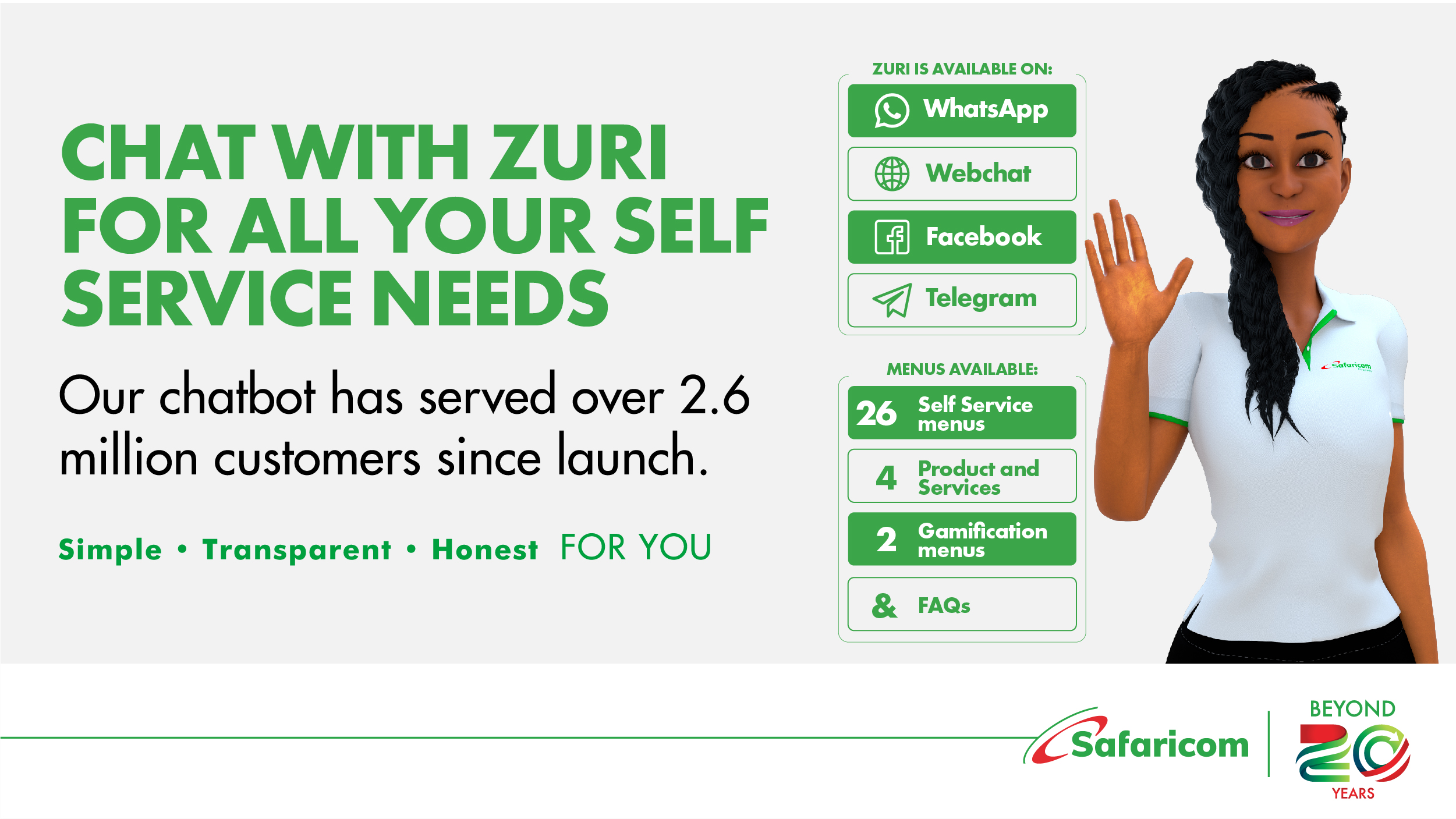In this blog post, you will explore a list of the best 16 AI Powered Business Opportunities for Kenyan Entrepreneurs and small businesses in 2025
Kenya’s business landscape is evolving rapidly, and technology, especially AI is at the heart of this transformation. By taking advantage of those modern tools, you can run more efficient operations, generate more profits, and make smarter business decisions.
Here’s how you can take advantage of 16 AI-powered opportunities. The article outlines specific, industry-proven tools for each idea.
Table of Content
- What is AI?
- Best AI tools for entrepreneurs and Small businesses in Kenya
- 1. AI Research & Content Analysis
- 2. AI Design Services
- 3. Digital Products
- 4. AI Animation Studio
- 5. Prompt Engineering
- 6. Faceless YouTube Channels
- 7. Social Media Content Automation
- 8. Chatbot Sales
- 9. Print-on-Demand Designs
- 10. Online Courses
- 11. AI-Enhanced Photography
- 12. AI Voiceover Services
- 13. AI-Powered Copywriting
- 14. AI-Powered Virtual Assistants
- 15. AI-Driven Data Analysis
- 16. AI-Powered Customer Support
- Benefits of AI for Small Businesses
- Potential Negative Impacts of AI
- Which businesses are already Using AI in Kenya?
What is AI?
Artificial Intelligence (AI) is a technology that enables machines to perform tasks that typically require human intelligence, such as understanding natural language, recognizing images and speech, and making decisions.
Read Next: How to Create the Best AI Content in 2025
The goal of this post is to provide small business owners in Kenya with an understanding of the potential benefits of AI and the steps they can take to harness the power of this technology to improve their businesses.
Best AI tools for entrepreneurs and Small businesses in Kenya

Like elsewhere in Africa, Micro and small and medium enterprises (MSMEs) dominate the Kenyan economy. They are defined as firms with fewer than 100 employees with detailed breakdowns as follows;
- Micro enterprises have less than 10 employees;
- Small enterprises have 10-49 employees
- Medium-sized enterprises have 50-99 employees
The impact of AI on small businesses is a topic that has gained a lot of attention in recent years due to the potential benefits it can bring to these businesses. AI can help them improve efficiency, increase revenue, and reach new customers.
The majority of them lack the knowledge and access to the best AI technologies to adopt in their operations. Your choice will depend on the specific needs and goals of the business. However, some AI technologies that can be particularly beneficial for small businesses in Africa.
The list below will outline the best 16 AI options you can use and how you can use each.
1. AI Research & Content Analysis
Modern research requires speed and accuracy. Use AI platforms like otioai and ChatGPT to digest research papers and market data. By summarizing studies relevant to agriculture, fintech, and renewable energy, you can generate comprehensive reports in both English and Swahili, giving local businesses the insights they need.
2. AI Design Services
Stand out with creative design powered by AI. Tools like Canva and Microsoft Designer offer intuitive interfaces for generating logos, marketing materials, and social media visuals. These platforms often feature AI-assisted design suggestions, ensuring your work is both modern and culturally resonant. Incorporate elements such as Maasai patterns or the Nairobi skyline to appeal to local tastes.
3. Digital Products
Create valuable digital assets by using ChatGPT for writing ebooks, guides, and templates. Focus on topics like mobile money trends or agribusiness strategies to educate your audience. Platforms like Gumroad provide a marketplace where your digital products can reach a broad audience, turning expertise into scalable revenue.
4. AI Animation Studio
Simplify complex ideas with animated content. Leverage tools such as AnimateAI and Vyond to produce explainer videos and ads. These tools are designed to transform script and storyboard inputs into engaging animated content, perfect for EdTech, tourism, or startup pitches.
5. Prompt Engineering
As AI models become more integral to business, the quality of input matters. Use platforms like PromptBase to create and sell tailored prompts that generate specific outputs. Customize prompts for local languages such as Swahili or Sheng, ensuring that businesses receive relevant content that addresses Kenyan market nuances.
6. Faceless YouTube Channels
Build a strong digital presence without appearing on camera. Use ChatGPT for scripting, HeyGen for avatar-based video production, and ElevenLabs for realistic voiceovers. These tools help you generate engaging content on topics like tech trends, business strategies, or cultural stories, all while keeping production costs low.
7. Social Media Content Automation
Stay relevant online by automating your social media. Tools like Buffer and AI-powered scheduling platforms can integrate with GPT-based content generators to produce posts for Instagram, Facebook, and Twitter. Automate culturally relevant content that highlights local events, trends, and achievements.
8. Chatbot Sales
Enhance customer interaction with AI chatbots. Platforms like Voiceflow and Dialogflow allow you to build multilingual chatbots that communicate in both English and Swahili. These chatbots can be integrated into websites, e-commerce platforms, and mobile apps to provide round-the-clock customer service.
9. Print-on-Demand Designs
Merge creativity and commerce by producing merchandise with AI-assisted design tools. Use Canva or Adobe Firefly to create designs that capture the essence of Kenyan culture, such as wildlife, landmarks, and traditional patterns. Then, partner with print-on-demand services like Printful or TeeSpring to market these designs globally.
10. Online Courses
Capitalize on the growing e-learning market by creating courses with AI. ChatGPT can help structure content and generate engaging modules for courses on topics like “Starting a Business in Kenya” or “Optimizing M-Pesa for Growth.” Platforms such as Udemy and Teachable make it easy to distribute your courses and reach learners nationwide.
11. AI-Enhanced Photography
Elevate your visual content using AI-enhanced photography tools. Applications like Adobe Photoshop’s Neural Filters or Luminar AI allow you to retouch images and create stunning visuals. These tools are invaluable for industries like real estate and tourism, where high-quality imagery can make a significant impact.
12. AI Voiceover Services
Capitalize on the need for professional audio content using AI-driven voiceover tools. Descript and ElevenLabs offer realistic voice synthesis in multiple accents, including various Kenyan dialects. These tools are ideal for e-learning videos, podcasts, and advertising, providing a fast and cost-effective alternative to traditional voice talent.
13. AI-Powered Copywriting

Generate engaging, persuasive content with AI-powered copywriting tools. ChatGPT and Jasper AI can produce targeted blogs, social media posts, and advertisements that resonate with Kenyan audiences. By refining your messaging for local markets, you drive higher engagement and conversion rates.
14. AI-Powered Virtual Assistants
Boost productivity by integrating AI into administrative functions. Virtual assistant platforms like x.ai or Microsoft 365 Copilot can manage emails, schedule appointments, and handle routine tasks. This allows busy entrepreneurs and small business owners to focus on strategic growth without the burden of day-to-day minutiae.
15. AI-Driven Data Analysis
Turn raw data into actionable insights using AI analytics tools. Platforms such as IBM Watson Analytics or Microsoft Power BI with AI integrations help you analyze sales, market trends, and consumer behavior. This data-driven approach is essential for optimizing operations and making informed decisions in sectors like retail, agriculture, and healthcare.
16. AI-Powered Customer Support
Enhance customer experience with AI-driven support systems. Tools like Zendesk AI or Intercom’s Resolution Bot can handle inquiries efficiently, offering solutions in both English and Swahili. With real-time, around-the-clock assistance, businesses can improve satisfaction and build long-term customer loyalty.
Benefits of AI for Small Businesses
Using Artificial Intelligence (AI) offers both opportunities and challenges for small businesses in Kenya.
- Increased Efficiency and Productivity: AI can automate repetitive tasks such as data entry, allowing businesses to allocate resources to core activities, thereby enhancing efficiency and reducing operational costs.
- Improved Customer Service and Personalization: Through natural language processing and machine learning, AI enables businesses to better understand customer preferences, facilitating the creation of targeted marketing campaigns and personalized recommendations that can boost customer loyalty and revenue.
- Access to New Markets and Customers: AI-powered tools can assist small businesses in reaching broader audiences via online platforms and e-commerce, supporting growth and expansion efforts.
- Enhanced Decision-Making: AI provides valuable insights through data analysis and predictive modeling, aiding businesses in making informed decisions to maintain competitiveness.
- Improved Accuracy and Speed: AI enhances tasks requiring precision and speed, such as data analysis and natural language processing, leading to more accurate outcomes and efficient operations.
Potential Negative Impacts of AI
- Job Displacement: Automation through AI may result in job losses, as machines perform certain tasks more efficiently and cost-effectively than humans, necessitating workforce retraining.
- Data Privacy and Security: AI systems rely on extensive data, raising concerns about the collection, storage, and use of sensitive information. Small businesses must implement robust security measures to protect data privacy.
- Technical Expertise: Implementing and maintaining AI systems requires specialized knowledge. Limited resources or expertise can hinder small businesses from adopting AI technologies.
- High Costs: The investment required for AI adoption can be substantial, posing a challenge for small businesses with constrained budgets.
- Limited Data Quality: AI effectiveness depends on high-quality data. Small businesses may struggle with access to comprehensive datasets, affecting the accuracy of AI-driven insights.
While AI presents significant advantages for small businesses in Kenya, careful consideration of these potential drawbacks is essential to ensure successful and responsible implementation.
Sources
Which businesses are already Using AI in Kenya?

There are already many examples of small businesses in Kenya that have successfully implemented AI to improve their operations. For example,
- Agrvision is a Kenyan agricultural company that uses AI-powered crop monitoring and yield forecasting techniques to increase crop yields and reduce costs.
- Safaricom is another Kenyan business that uses an AI-powered chatbot. Zuri, is an artificial intelligence (AI) Chatbot assistant available on Telegram and Facebook Messenger. It ensures real-time customer service to over 17 million Safaricom mobile data users by managing subscription services, Mpesa reversals, and checking airtime balances giving clients superior customer service and increased sales.
These case studies demonstrate that it is possible for small and big businesses in Kenya to successfully implement AI, despite the challenges they may face. The key is to have a clear strategy and a willingness to experiment and adapt.
Conclusion
In conclusion, AI has the potential to significantly impact small businesses in Kenya positively, but some challenges need to be addressed. The implementation of AI should be done with a clear strategy, with the willingness to experiment and adapt. The benefits of AI are undeniable, and small business owners should consider harnessing the power of this technology to improve their operations and increase their bottom line.



